Plans for £3.5bn theme park on Kent marsh dismay conservationists
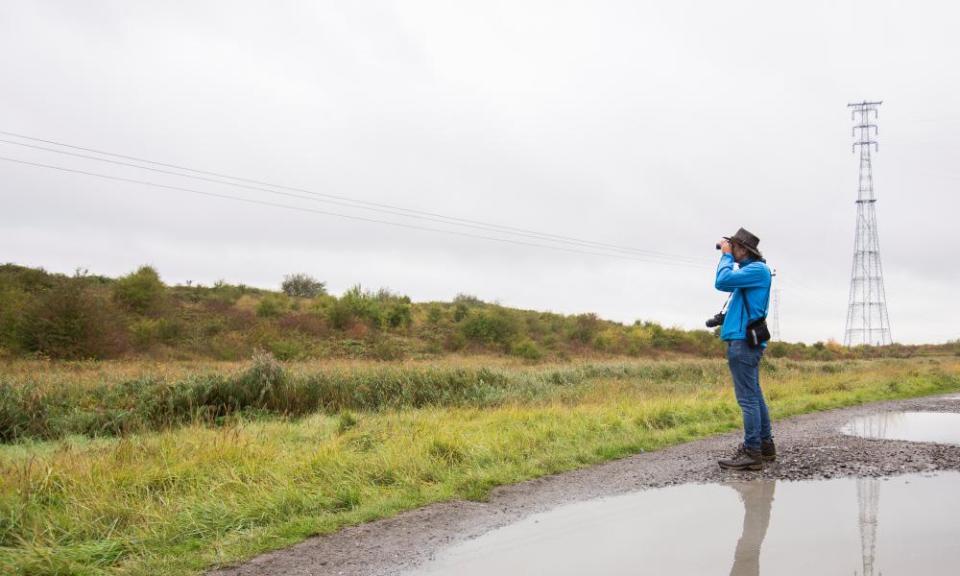
It is the unlikeliest of planning battles: a fight between the distinguished jumping spider and a rollercoaster judged to be “nationally significant infrastructure”.
Ambitious £3.5bn plans for the biggest theme park in Britain beside the Thames threaten what conservationists say is the best site in the country for rare invertebrates.
Swanscombe Peninsula in Kent is earmarked for the London Resort, a theme park with rides inspired by shows from BBC Studios, ITV Studios and Paramount Pictures, alongside hotels, restaurants and a conference centre.
But the site, a mix of local nature reserves, marshes, pasture and a former concrete works, is currently home to 1,992 species of invertebrates including 250 of conservation concern – more than any known site in the country, according to the charity Buglife.
The London Resort was the first commercial venture to be designated as a “nationally significant infrastructure project” by the government, which means the developers can go straight to the secretary of state for housing, communities and local government to seek consent for the project, which they claim will create 30,000 jobs.
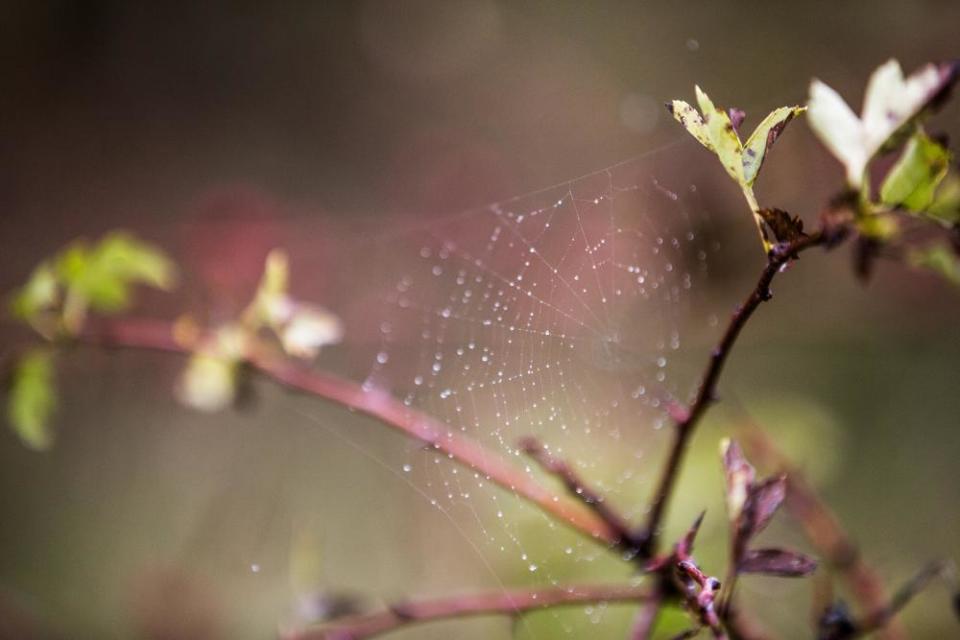
An application is set to be made to the minister within weeks, but conservationists and local people are mounting a campaign to save the peninsula.
Buglife is to petition Natural England, the government’s conservation watchdog, to make the peninsula a site of special scientific interest (SSSI) to protect its rare wildlife, which includes the distinguished jumping spider, a minuscule, critically endangered arachnid only found in one other location in Britain.
“This site meets all the criteria to be an SSSI,” said Paul Hetherington of Buglife. “It’s a fantastic, massive open space right on the doorstep of a huge population in London. The ‘nationally significant infrastructure’ designation was brought in for motorways and HS2. How does building a theme park constitute national infrastructure?”
The peninsula was once home to Britain’s first cement works and later used for landfill but the “brownfield” site has become “open mosaic habitat” – a mixture of scrub, orchid-rich grassland and hot microclimates created by old industry – one of the country’s rarest wildlife havens.
Special invertebrates include the brown-banded carder bee and the sea aster mining bee. There are also endangered water voles and more breeding birds (82 species) than at the better known Rainham Marshes nature reserve, including the endangered nightingale and marsh harrier. Peregrine falcons perch on a pylon that is the highest in Britain.
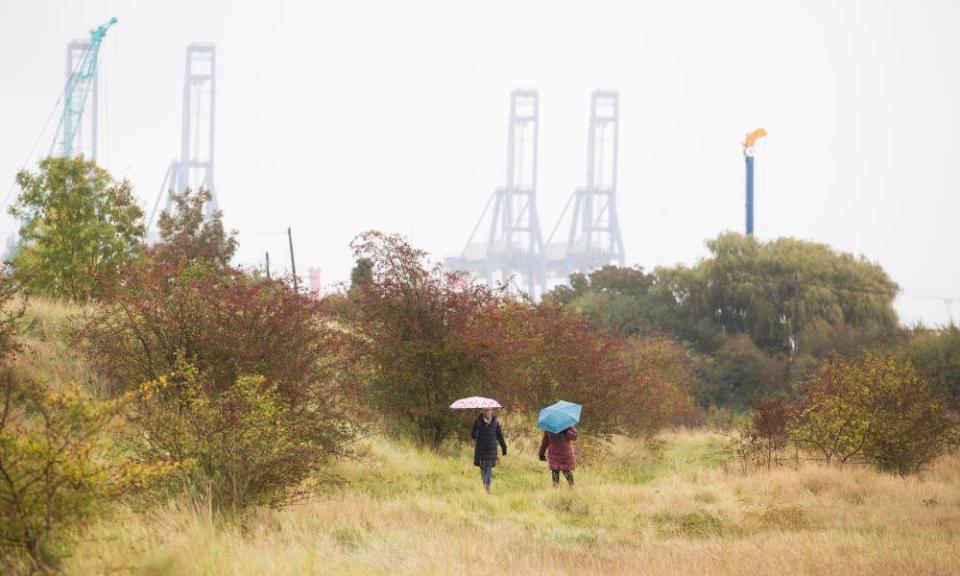
The riverside area – where the London Resort proposes a ferry terminal bringing tourists from Essex – is a marine conservation zone, designated to protect the tentacled lagoon worm, less than 5mm long, which is a nationally scarce marine animal and protected under the Wildlife and Countryside Act.
The RSPB has called the site “an outstanding mosaic of grasslands, wetlands, scrub, inter-tidal habitats and brownfield features … in urgent need of designating as a SSSI”.
Under the London Resort’s plans, the 465-hectare site will be refashioned into attractions including the Studios, “a gritty modern-day warehouse district that practically roars with the exhilarating thrills of big, blockbuster features”, an “enchanted” woodland realm, ruins of a “mysterious long-lost Mesoamerican civilisation” and the Starport, “a bustling 23rd-century landing zone”.
But some local people would prefer to save it for its peaceful green space and real-life wildlife.
“This has been Kent’s best-kept secret,” said Donna Zimmer, a local campaigner who regularly visits the peninsula to look for birds. “You never know what you are going to see. This marshland habitat is rare and the marshes do a great job stopping us from flooding. It’s just bizarre that we want to develop them. Once it’s gone we’re never going to get this space back.”
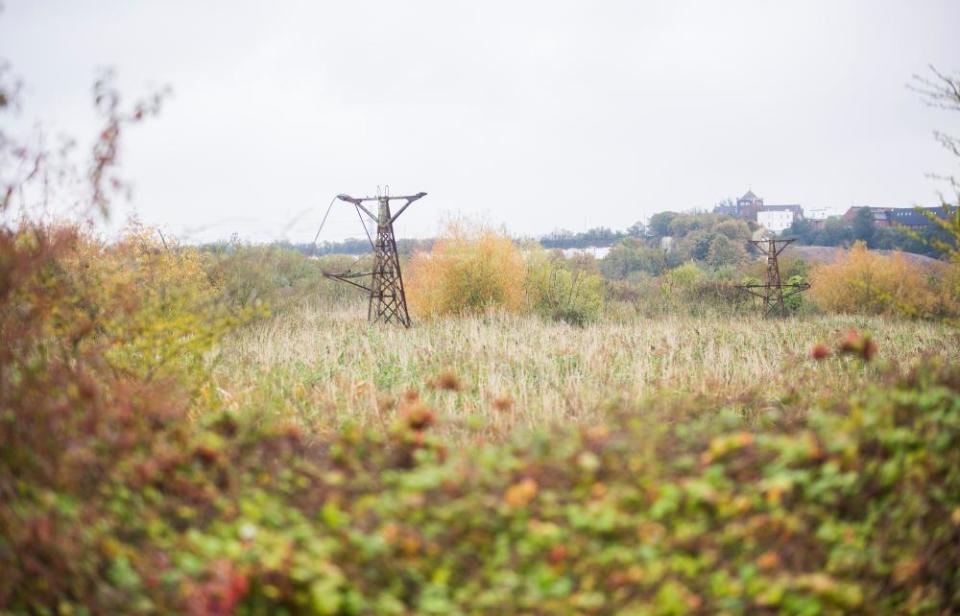
Zimmer was also critical of project partners, including BBC Studios, which will enable the resort to use its programmes and characters. “How can the BBC be part of this?” she said. “We are in a climate emergency, what happens next is up to everyone of us. Sir David Attenborough suggests that if we put nature at the heart of all our decisions we would make a big difference. The BBC should take this advice and withdraw its interest from the London Resort.”
“We’re absolutely devastated by the London Resort proposal,” said Kim Smith, a local resident who walks around the peninsula every day. “This is the most wonderful place, like something out of Dickens, and it benefits our physical and mental health.
“At the moment the nature can freely go between the areas but it won’t if there’s a great big resort in the middle. You wonder how nature can survive.”
The London Resort said it would deliver a “net gain in biodiversity” by enhancing land beyond the site and retaining two undeveloped areas of marshland and the local wildlife site at Botany Marsh.
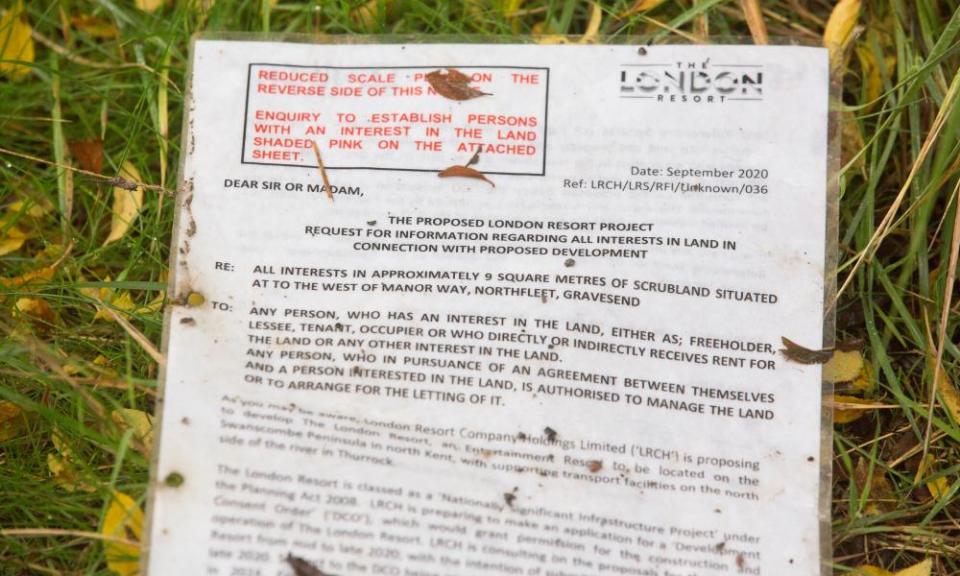
A spokesperson for the London Resort said they had been surveying the site since 2012, understood the presence of rare species and proposed to translocate some “lost habitat”, recreate open mosaic habitat elsewhere, and was exploring the possibility of creating a new salt marsh by the Thames.
“The area has been largely left, unmanaged for decades and if it continues to be unmanaged, it will eventually turn to scrub and the precious habitats will be lost,” said the spokesperson. “We are therefore proposing a series of habitat enhancements and management interventions to ensure that these habitats can continue to support the rich bird, invertebrate, reptile and small mammal species that are currently using the site.”
A recent consultation by the developers found 73% of respondents supported its approach to the environment, which includes new footpath routes, boardwalks in the marshes, “wildlife zones” without public access and new bird hides so people can enjoy the wildlife without disturbing it.
BBC Studios had no comment to make on criticisms of its involvement and said its agreement with the London Resort was a preliminary one pending the outcome of public consultations.

